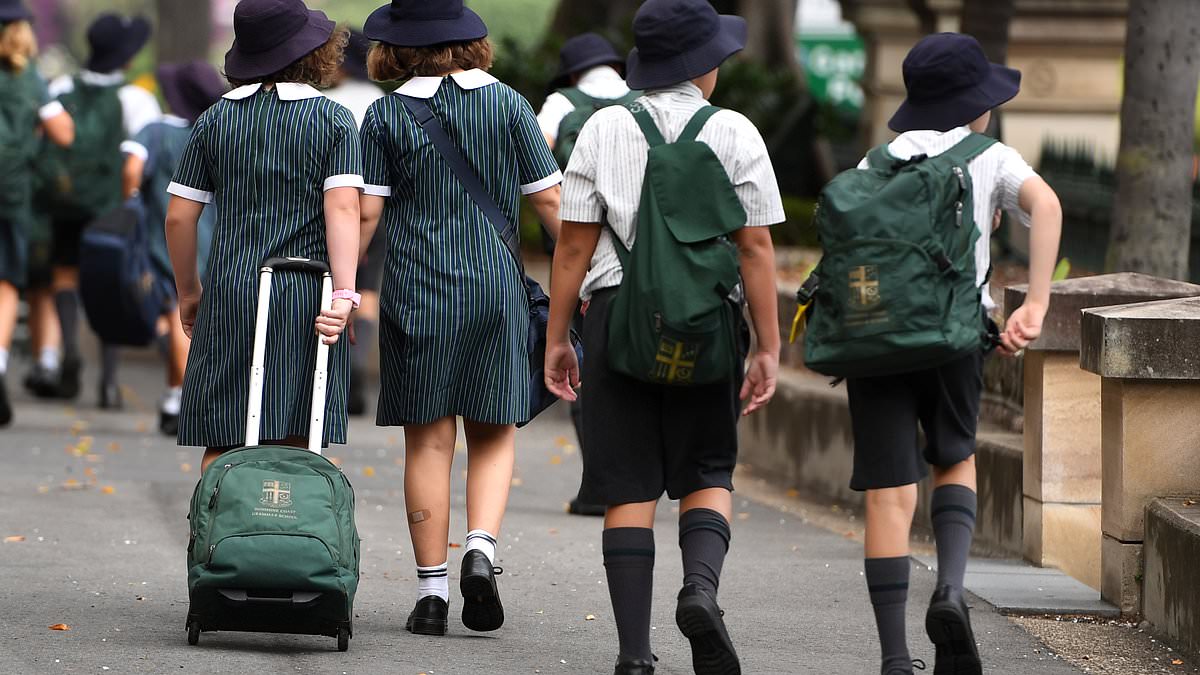Thousands of Queensland teachers will walk off the job at state schools for the first time in 15 years on Wednesday -despite many earning more than $100k a year and getting 13 weeks of annual leave.
Last week, union members voted for a 24-hour teachers’ strike after rejecting a state government pay offer.
Almost 600,000 students across Queensland will be affected.
State schools will remain open with minimal supervision for parents unable to make alternative care arrangements.
For a permanent or temporary beginning teacher with a four-year degree, the base salary in Queensland state schools is $84,078 per year.
A senior teacher earns $116,729, while an experienced senior teacher can make up to $123,105.
A highly accomplished teacher earns $130,770, a lead teacher receives $142,766, and a department head earns $141,088 per year.
Queensland state school teachers get around 13 weeks of annual leave, in line with student holidays, including a six-week summer break and three two-week mid-term breaks.
While they are not required to work during the holidays, about 5-6 weeks are paid leave, made up of 20 days of annual leave and additional vacation entitlements (28 days total, or 33 in remote schools).
The Queensland Teachers’ Union said its almost 50,000 members had voted to take industrial action, marking its first strike since 2009.
Dozens of rallies will be held across the state, including Brisbane’s Southbank Convention Centre, where teachers will converge and march to state parliament.
The strike action is part of a campaign for safer classrooms and solutions to the teacher shortage, the union says.
‘Together, teachers and school leaders will write a new chapter in Queensland’s history books and remind the government just how valuable we are to education in our state schools,’ the Queensland Teachers’ Union said on Instagram.
A second strike hasn’t been ruled out.
Queensland Council of Unions urged parents to support the strike action.
‘If you’re able, keep your kids home and stand with teachers in their fight for the future of education,’ it said.
‘Queensland students deserve the very best teachers, and that means fair salaries, safe workplaces, and support that matches the scale of the challenges in our schools.’
The Queensland government failed to secure a new pay deal for teachers during 17 meetings with the union in the last five months.
An offer of three per cent, 2.5 per cent, and 2.5 per cent salary increases over the next three years was rejected by the teachers’ union in June, sparking protests.
